#write blog
Explore tagged Tumblr posts
Text
“You’re throat is raw from screaming to a god who isn’t listening” Art.
#writeblr#writers#writers on tumblr#writing#writing prompt#writing prompts#writer#writers and poets#writerscommunity#prompt#write blog#prompt list#writing community#writing inspiration#writing is hard#writing life#on writing#creative writing#female writers#writer stuff#writblr
29 notes
·
View notes
Text
Apparently writing is only worsening my mental health😓
I hadn't even noticed this, but the way I view writing is what's making me so depressed. When I told my doctor about my history of writing, explaining to them that my creativity peak was when I was 13, I found that writing flowed easier because I was writing for fun.
I was writing so much as seven chapters a day, whereas I can't even get myself to write one in under a week nowadays. I had little stress when I was 13, and while my life was hard, I used writing as an escape. I was writing for myself and for fun. I had so many ideas and I didn't even care how bad the writing was.
But now that I have all these followers and people that support me, I feel this obligation to hurry up and force something out to appeal to everyone. I have this deep fear of failure and inconsistency and I've allowed it to ruin the fun of writing for months.
And to make matters worse, my doctor says I'm self conscious about my work. Not about myself alone, but what I create. I spend so long trying to perfect my stories, hoping that they're good enough to maybe even amaze people, and in the end, when I don't match the non-existent perfection that I created in my head, I feel guilty for even posting it.
It breaks my heart that I'm being told this, as one of my biggest aspirations is to be a good writer. But it's true. I've been torturing myself.
So, as of today, I'm on my journey to heal my relationship with creating.
#𝖔𝖓𝖑𝖎𝖓𝖊 𝖓𝖔𝖜!#fanfiction#writer stuff#writers blog#writer blog#writers block#write blog#writing blog#writing block#art block
11 notes
·
View notes
Text
TotD Prologue — Public Release

Have you ever wondered if Destiny itself has a destiny? And if so, does it create it for itself, or... is it already predetermined by someone else?
The prologue of my debut book is finally up on Royal Road!!
This story has lived inside me for years, and I’m so happy (and nervous) to finally begin sharing it with the world!!
If you find a moment to read it, I would truly love to know your thoughts. And if you’d like to support my work, even just a little, it would mean more to me than I can say :>
Thank you for being here <3
With love,
From Monica.
#writer#writers on tumblr#writerscommunity#writing#books#creative writing#books and reading#my writing#writer things#writeblr#threads of the destiny#monica nilsen#writers#write#writings#writing stuff#writers life#writers blog#writers block#creative writers#writing books#writing block#writing blog#write blog#fantasy writer#fantasy writing#high fantasy#slow burn#ancient egypt#morally grey characters
7 notes
·
View notes
Text
This craving makes my teeth ache
Longing for a bite of warmth
Flesh melting on my tongue
Honey glazed allure of love
#creative writing#writers on tumblr#writer#writers and poets#writers community#writeblr#literature#poems and poetry#poetry#my post#my poem#my poetry#spilled poem#spilled writing#spilled poetry#spilled words#writeblogging#write blog#on love#on longing#female writers
6 notes
·
View notes
Text

I constantly find myself saying something along the lines of “i dont know how to english this”.
english is my first, and unfortunately only (fluent) language.
while i always do my best to expand my vocabulary, language is a limited thing, and many feelings and experiences are impossible to capture in words.
I usually resort to noises, gestures, descriptions of similar feelings, or i give up all together.
but even if i can not express something, it is real.
it lives inside of me.
#how do you convey things that can not be articulated in words? thats a genuine question please tell me#writeblr#write blog#writers on tumblr#writer stuff#english#language#langblr
4 notes
·
View notes
Text
10 Non-Lethal Injuries to Add Pain to Your Writing
New Part: 10 Lethal Injury Ideas
If you need a simple way to make your characters feel pain, here are some ideas:
1. Sprained Ankle
A common injury that can severely limit mobility. This is useful because your characters will have to experience a mild struggle and adapt their plans to their new lack of mobiliy. Perfect to add tension to a chase scene.
2. Rib Contusion
A painful bruise on the ribs can make breathing difficult, helping you sneak in those ragged wheezes during a fight scene. Could also be used for something sport-related! It's impactful enough to leave a lingering pain but not enough to hinder their overall movement.
3. Concussions
This common brain injury can lead to confusion, dizziness, and mood swings, affecting a character’s judgment heavily. It can also cause mild amnesia.
I enjoy using concussions when you need another character to subtly take over the fight/scene, it's an easy way to switch POVs. You could also use it if you need a 'cute' recovery moment with A and B.
4. Fractured Finger
A broken finger can complicate tasks that require fine motor skills. This would be perfect for characters like artists, writers, etc. Or, a fighter who brushes it off as nothing till they try to throw a punch and are hit with pain.
5. Road Rash
Road rash is an abrasion caused by friction. Aka scraping skin. The raw, painful sting resulting from a fall can be a quick but effective way to add pain to your writing. Tip: it's great if you need a mild injury for a child.
6. Shoulder Dislocation
This injury can be excruciating and often leads to an inability to use one arm, forcing characters to confront their limitations while adding urgency to their situation. Good for torture scenes.
7. Deep Laceration
A deep laceration is a cut that requires stitches. As someone who got stitches as a kid, they really aren't that bad! A 2-3 inch wound (in length) provides just enough pain and blood to add that dramatic flair to your writing while not severely deterring your character.
This is also a great wound to look back on since it often scars. Note: the deeper and wider the cut the worse your character's condition. Don't give them a 5 inch deep gash and call that mild.
8. Burns
Whether from fire, chemicals, or hot surfaces, burns can cause intense suffering and lingering trauma. Like the previous injury, the lasting physical and emotional trauma of a burn is a great wound for characters to look back on.
If you want to explore writing burns, read here.
9. Pulled Muscle
This can create ongoing pain and restrict movement, offering a window to force your character to lean on another. Note: I personally use muscle related injuries when I want to focus more on the pain and sprains to focus on a lack of mobility.
10. Tendonitis
Inflammation of a tendon can cause chronic pain and limit a character's ability to perform tasks they usually take for granted. When exploring tendonitis make sure you research well as this can easily turn into a more severe injury.
This is a quick, brief list of ideas to provide writers inspiration. Since it is a shorter blog, I have not covered the injuries in detail. This is inspiration, not a thorough guide. Happy writing! :)
Looking For More Writing Tips And Tricks?
Check out the rest of Quillology with Haya; a blog dedicated to writing and publishing tips for authors!
Instagram Tiktok
#hayatheauthor#haya's book blog#haya blogs#writing community#quillology with haya#writing tools#writer things#writing advice#writer community#writing techniques#writing prompt#writing stuff#creative writing#ya writing advice#writing tips and tricks#writer tools#writers of tumblr#writer blog#writers block#quillology with haya sameer#writers on tumblr#writerscommunity#writer stuff#author help#author advice#author#writing inspiration#writeblr#novel writing#on writing
63K notes
·
View notes
Text
Thanks for the images mate, these would be very helpful. I've just known that there is a word "cajole".
sometimes you need dialogue tags and don't want to use the same four


#writing#writing prompt#writing tips#writing tag#creative writing#writing reference#writing resources#writing community#writer#writers#writing tumblr#tumblr writing#writing stuff#writing things#writer stuff#writers stuff#writer on tumblr#writers on tumblr#tumblr writer#tumblr writers#writer community#writers community#thanks#writeblr#write blog#writing blog#writer blog#writer blr#charts#wheel chart
179K notes
·
View notes
Text
*writes two paragraphs after months of literally nothing and it took three hours*
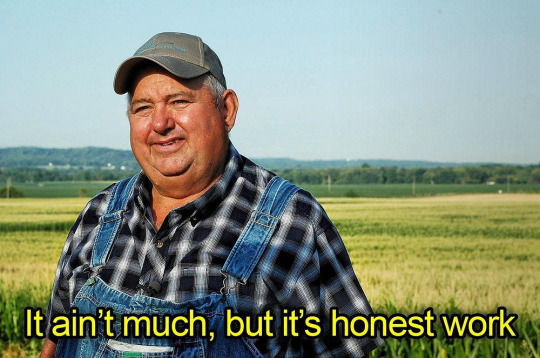
#theaftersundown#writers on tumblr#creative writing#novel writing#writerscommunity#female writers#fanfiction#artists on tumblr#archive of our own#romance novels#graphic novel#writers block#writing memes#writing motivation#aspiring writer#writers of tumblr#ao3 writer#writeblr#writers and poets#amwriting#ao3#fiction writing#currently reading#books and reading#book blog#writing life#writing prompt#creative process#ao3feed#ao3 fanfic
51K notes
·
View notes
Text
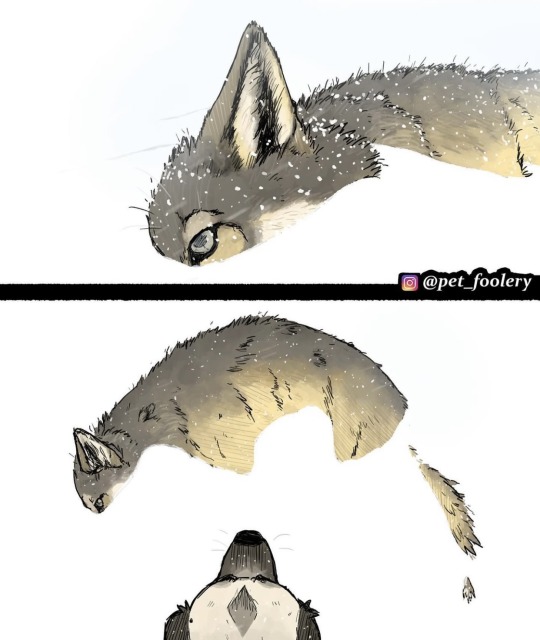
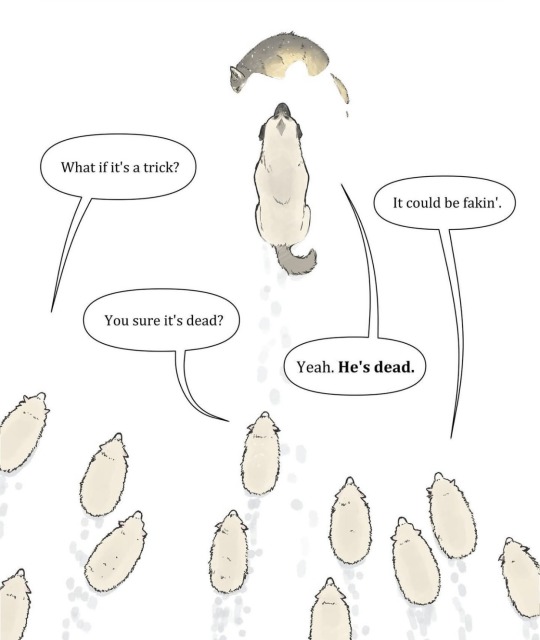
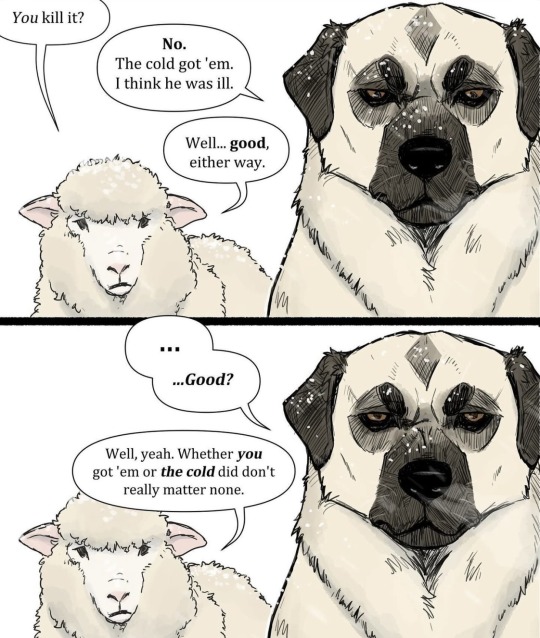
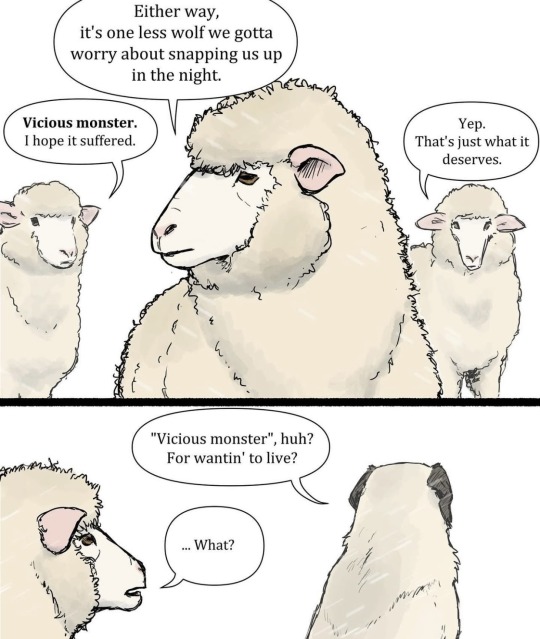
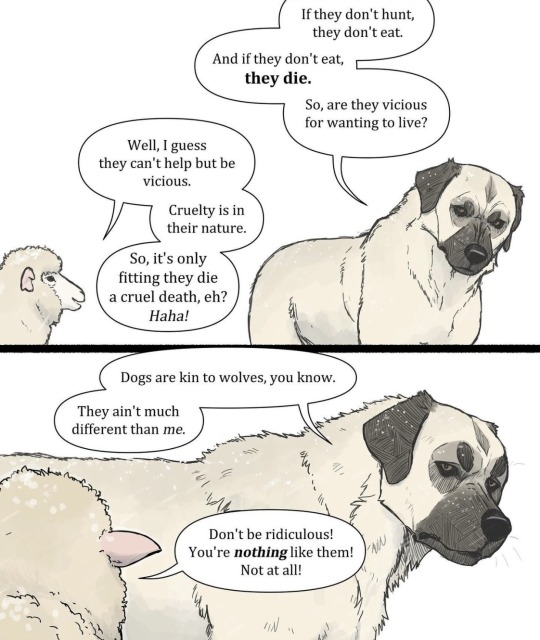
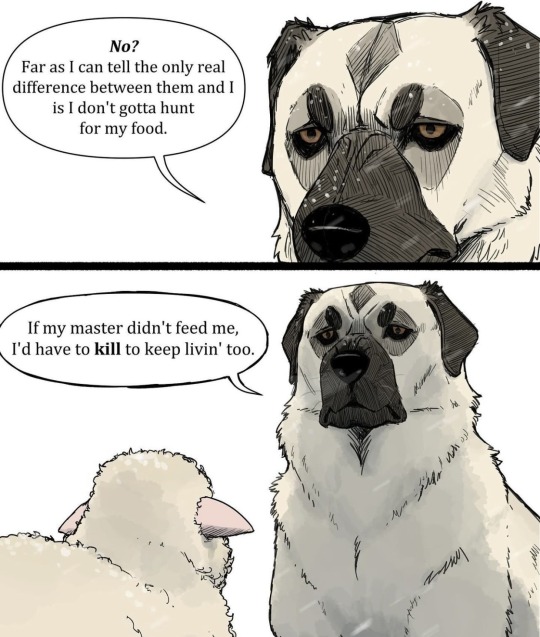
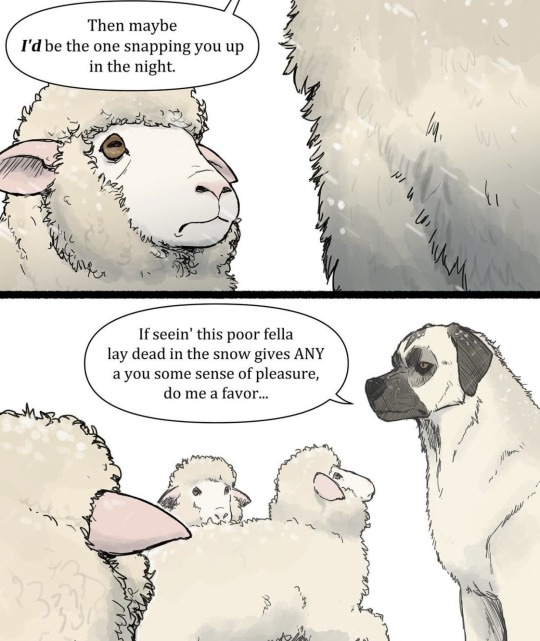
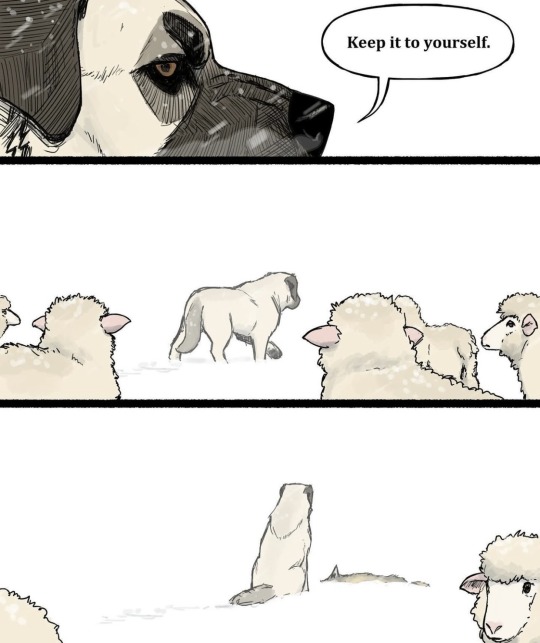
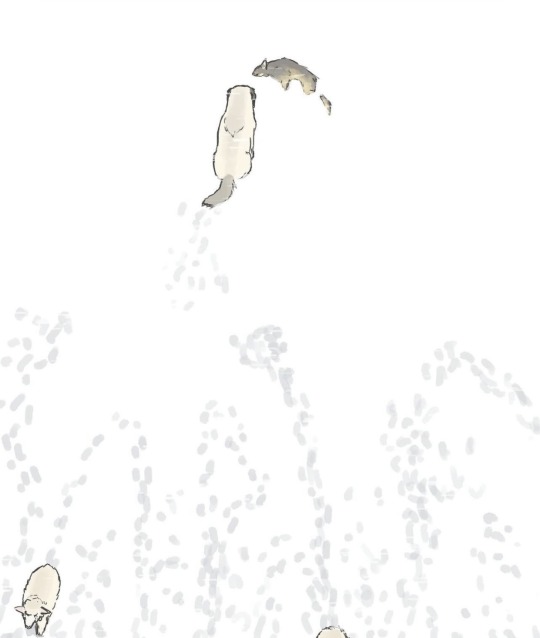

© pet_foolery
#tw animal death#art#artist#artblr#artists#art community#comics#comic#spilled ink#spilled words#spilled writing#spilled emotions#prose#spilled feelings#spilled heart#whump#angst#whumpblr#dog#dogs#wolf#wolves#animals#art blog#art gallery
32K notes
·
View notes
Text
RENUNCIA
Hay momentos en la vida en los que el amor nos enfrenta a decisiones que no esperábamos. A veces, conocer a la persona indicada implica mirar dentro de uno mismo y preguntarse: ¿Qué estoy dispuesto a dejar atrás por esto que siento? El relato "Renuncia" nos sumerge en esa encrucijada vital donde cada elección lleva consigo una pérdida, pero también una revelación. Porque el amor auténtico no siempre llega sin condiciones, y su presencia lo cambia todo.
Esta historia breve habla de sacrificios íntimos, de vínculos que transforman, y de ese instante único en el que uno debe decidir si avanzar con el corazón en la mano o proteger lo que ya conoce. "Renuncia" no ofrece respuestas fáciles, pero sí plantea una pregunta que resuena mucho después de leerla: ¿Hasta dónde serías capaz de llegar por amor? Es un relato que toca fibras profundas y despierta emociones que todos, en algún momento, hemos sentido o temido.
Sumérgete en este breve pero poderoso relato que cuestiona lo que estamos dispuestos a soltar cuando el amor llama con fuerza. Porque a veces amar es sostener... y otras, saber dejar ir.
#Relato corto#Literatura#Lectura#Romance#Amor#Decisiones#Sacrificio#Renuncia#Escritores#Autores#Write blog#Blog personal#Ecos de Papel
0 notes
Text
Body Language
When someone is...
Sad

Face/Body:
Avoidant/reduced eye contact
Drooping eyelids
Downcast eyes
Frowning
Raised inner ends of eyebrows
Dropped or furrowed eyebrows
Quivering lip/biting lip
Wrinkled nose
Voice:
Soft pitch
Low lone
Pauses/hesitant speech
Quiet/breathy
Slow speech
Voice cracks/breaking voice
Gestures/Posture:
Slouching/lowered head
Rigid/tense posture
Half formed/slow movement
Fidgeting or clasped hands
Sniffing or heavy swallows
Self soothing gestures (running hands over the arms, hand over heart, holding face in palms, etc)
#writersbloxx#creative writing#snippet#my writing#short story#story#writers on tumblr#writers community#writing#writeblr#writers and poets#writers block#writers blog#writersblr#writing prompt#writing community#writing advice#writing tips#writing inspiration#aspiring author#aspiring writer#writerscommunity
17K notes
·
View notes
Text
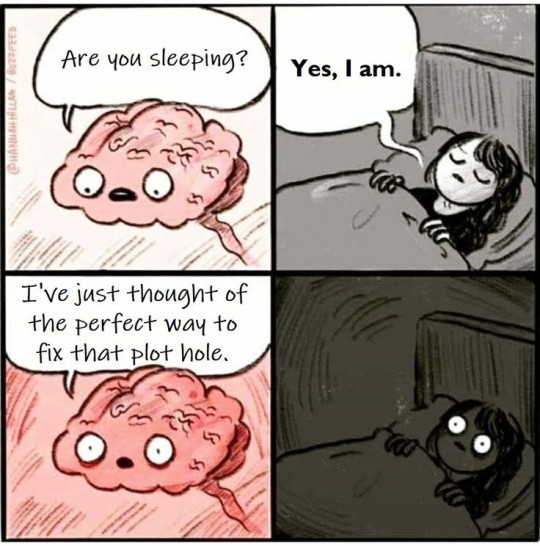
Cause of my insomnia number one:
#writer#writers on tumblr#writerscommunity#writing#books#books and reading#creative writing#my writing#writer things#writeblr#writers#write#writings#writers community#writing community#creative writers#writer community#writing stuff#writing struggles#writers on writing#writers life#writers blog#writers block#writing life#writing blog#writing books#writing block
17K notes
·
View notes
Text
nothinggg better than torturing an emotionally repressed character until every single trauma they've ever refused to process starts spilling uncontrollably out of the cracks. like a matryoshka doll situation of repressed trauma and baby you better believe i'm going in there with a hammer
#'literal or metaphorical hammer' yes.#anyway 23k in and i finally got to the comfort part of hurt/comfort✌️#aphelion.txt#whump#really feeling that one post thats like. I interact with fiction normally. dont look at my blog#my writing
34K notes
·
View notes
Text
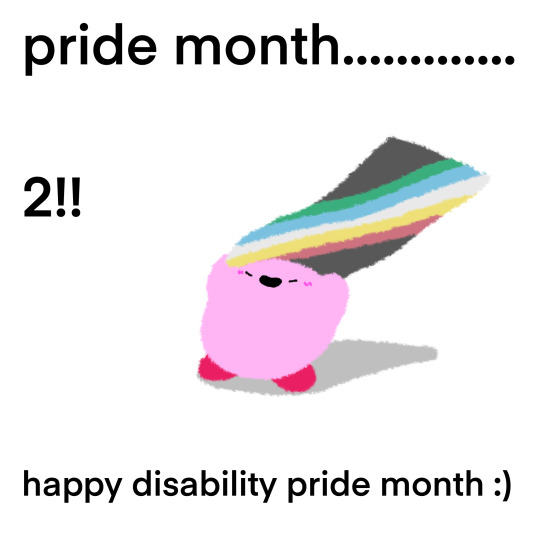
#kirby#disability pride#daily kirby#my art#digital#hal laboratory#nintendo#yes I know that my blog is basically completely inaccessible to the vision-impaired#unfortunately it is a conflict of needs type of thing :(#I can do audio and text transcription really well (email me for prices lol)#but if I tried to write image descriptions for all my drawings I wouldn't be able to run this blog anymore.#so someday when I have money I will find someone to pay to do it for me!#someday!!!#(yes including the archive)#anyway I think disability pride month is real cool#and I love seeing my friends who may not identify as strongly with the disabled community sharing more stuff about it every year :)#edit to clarify: I fully intend to keep running this blog as long as I'm able! new little guy every day forever!#I was just acknowledging the accessibility issues with my own blog and the steps to fix that
8K notes
·
View notes
Text
smut, 18+, mdni

nasty!toji who spits on your pussy while eating you out just to watch it slide down your puffy folds until it dips to your entrance. shoving his tongue inside your hole and fucking his saliva deeper inside, chuckling against you when he feels you clench around his hot tongue. “you like that, sweetheart?” words hot and thick against your sticky cunt.
toji gets impatient with not having an answer and pulls away just to spank your pussy. “asked you a question,” he barks in a sharp tone, catching your attention. you immediately squeal, voice breaking with a “y-yes! oh god, i love it, toji!” you can barely make out a muffled, “good girl” before he’s spreading your folds open wide, watching as you blossom pink and flushed for him before licking up your slit and sucking your clit directly into his mouth.
nasty!toji who lets his tongue wander when he’s going down on you, slipping inside your ass and feeling your pussy clench around his fingers that are still stuffing your cunt full. “quit squirmin’, mama,” he pulls his fingers out, coated in your slick, just to meanly slap your pussy twice before spreading your thighs further.
his tongue licking around your puckered hole, the one no one’s touched, “gonna let me be your first doll? want me to fill you up the way no man ever has?” his voice deep and rough, eyes flaring with something possessive, getting off on corrupting you.
nasty!toji who fucks you hard just to see you squirt on his chest. his thrusts are nothing short of cruel, swollen tip pushing against your abused g spot over and over again. you feel the pressure building, your thighs threatening to close from the intense feeling but toji won’t have it.
no, his calloused palms are shoving your legs apart and driving his hips even harder into the same spot. you try to warn him, voice wavering with each rough crash of his pelvis against your ass, but he only presses his hand down on your lower stomach, amplifying the sensation until you finally spray.
his chest is glistening from your gushing pussy and you feel a wave of embarrassment knowing you’re the direct cause for the sheen on his abs. before you can think too much about it, toji’s pulling out and diving face first into your cunt.
he licks at your folds, thumb rubbing harsh circles into your clit as your juices continue to flood his face despite you trying your hardest to make it stop. he runs his face back and forth across your silky skin and groans hoarsely, basking in your taste as he shoves his tongue inside your pussy.
“toji!! s’ too much—fuck!” you cry out, muscles giving out as you try to push his head away. he pulls his head back only to spit on your pussy, giving her two more rushed licks before sitting up on his knees once more, stroking his cock and fucking you right back in the same rhythm, a dirty combination of slick and squirt decorating the lower half of his face, coating his lips and that damn scar you love so much.
nasty!toji who fucks you in missionary just to watch you cry. the way he rams his cock into you is nothing short of mean, his eyes half lidded in lust and his fingers intertwined with your own as he holds them above your head. you’re rendered helpless, forced to take every rough thrust of his hips even when it’s too much. your cunt begins clenching around him too tight, the slight pain that the stretch of his fat cock gives you growing more intense with each relentless thrust.
you can’t even help the big tears welling up in your lash line or your bottom lip quivering as you begin to pout at him. “t-toji, it’s too deep. fuck, you’re too deep!” you begin to whine out, head turning back and forth against the plush pillow, body being run for all its worth and feeling the twitches throughout your frame in an unfamiliar pattern—you’re at your limit. and he’s still not through.
“just gotta make sure i get all of it, you know this, ma,” his nose is dragging along the column of your throat, his balls slapping wetly against your ass as he ensures every inch of his cock is snug inside your overstimulated pussy. your eyes shut and the tears begin to fall, your heels digging into the dip of his spine to pull him even deeper, body conflicting itself and somehow still begging for more.
“there she is, that’s—shit—that’s my good girl,” he praises once he feels you pulling him in even closer, head pulling back to look you in the eyes before flattening his tongue against your jaw, licking all the way up your cheek and savoring the salty taste of your tears.
“taste so sweet when you’re cryin’ for it. this poor little pussy can’t get enough even with all your whinin’,” his words are punctuated with a rumbly chuckle before he begins lapping at the opposite side of your face. his wet tongue moves slowly across your skin, the humiliation causing soft sobs to fall from your swollen lips but his hips never stop moving. his leaky tip rams against your cervix with each thrust while he presses a wet kiss to the corner of your eye. “so pretty when you cry, just makes me wanna fuck a baby into ‘ya.”
nasty!toji who can’t help himself from eating his own cum out of your pussy. he’d long since lost count of how many times he felt your cunt flutter around him, coming over and over from his insatiable desire to fuck you for all he’s worth. he didn’t give you time to recover after an orgasm, and if you’re honest, you can’t be sure you can tell the difference between one ending and the next one washing over your overstimulated body.
toji had inhumane stamina and sex happened to be one of the places it showcases the best. he can go for hours, never getting bored of your broken moans ringing through his ears or that frothy ring of your cum that coats the base of his dick. but when he does finally come, it doesn’t mean he’s anywhere close to being done with you.
nasty!toji fills you with so much of his cum that it can’t possibly all fit inside of your poor, abused pussy. it spills out even with him still driving his hips forward to push it deeper, making a mess of your thighs and his heavy balls as it overflows. toji simply doesn’t care and groans out in a raspy tone as he feels his orgasm last longer than normal, his cock somehow still filling you with more of his hot, sticky load.
when he eventually pulls out, he’s immediately dropping to his stomach and pushing the backs of your thighs towards your chest. you’ve never looked so messy before, he’s sure of it, as he licks up the thick stream of white pouring out of your sloppy folds. his eyes shut as he revels in the taste of your combined cum, bumping your clit with his nose while his tongue laps at your quivering entrance as he cleans up the mess he made of you.
#chelsea writes ᕱ⑅ᕱ#this is incredibly self indulgent and idc anymore here’s my first drabble on this blog :D#toji fushiguro smut#toji fushiguro x reader#toji x reader#toji x you#jjk x reader#jjk smut#toji fushiguro x you#jjk x you#fushiguro toji x reader#fushiguro toji smut#anime smut#tw dacryphilia#<- ?
11K notes
·
View notes